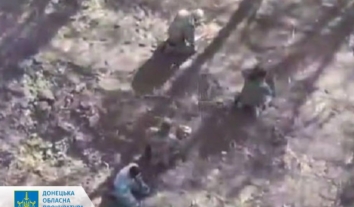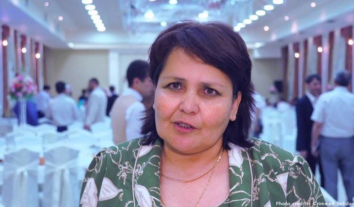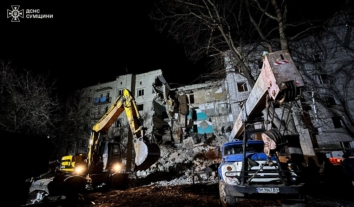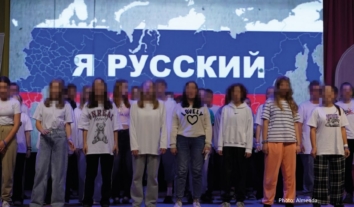Russians strike bus stop near Kherson, killing a civlian man and woman and injuring one person
Russians struck a bus stop in Antonivka, a few kilometres from Kherson, causing casualties and injuries, according to the Kherson Oblast Prosecutor’s Office.
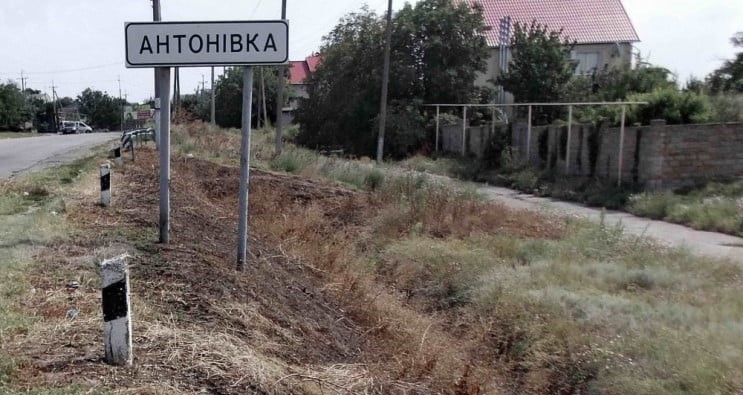 Illustrative photo/ Photo credits: herson.depo.ua
Illustrative photo/ Photo credits: herson.depo.uaInvestigators revealed that Russian forces targeted a bus stop in the village of Antonivka at around 11:15 on November 30, 2024.
The attack killed a man and a woman, and wounded another civilian, who was hospitalised.
On November 29, a Russian drone struck Kherson’s Dniprovskyi district, killing a local resident.
Kherson Oblast Military Administration reported that the civilian woman died instantly from the explosion.
Russian forces targeted the settlements of Antonivka, Prydniprovske, Bilozerka, Komyshany, Sadove, Romashkove, Tomyna Balka, Stanislav, Beryslav, Shliakhove, Zolota Balka, Monastyrske, Novovorontsovka, Odradokamianka, and the city of Kherson throughout the day.
They attacked residential areas, damaging seven houses and an office building. Attackers also destroyed a generator, buses, and cars. As a result of the Russian aggression, one person died and nine others sustained injuries.
On October 19, a 33-year-old man died in a Russian attack on Bilozerka in Kherson Oblast, according to the Oleksandr Prokudin, head of the Kherson Oblast Military Administration, on Facebook. The civilian died right away.
On November 15, around 10:00, Russians used a UAV to kill a 74-year-old woman in Antonivka, as confirmed by Prokudin and Kherson Oblast Prosecutor’s Office.
The prosecutor’s office noted that the woman died instantly when explosives from a drone struck her while she was on the street.
Prosecutors have opened a pre-trial investigation into criminal proceedings for violating laws and customs of war, combined with premeditated murder.
Previously, Southern Defense Forces spokesman Vladyslav Voloshin revealed that the enemy has begun using a new mining tactic in the Kherson direction, employing PFM-1 mines, known as ‘Petals’.
“These are plastic mines containing liquid explosives. They are difficult to detect using various means, including mine detectors, and are quite dangerous,” he said the national joint 24/7 newscast on November 9.
Voloshin added that the enemy has resorted to a deceptive strategy: covering these plastic mines in glue and rolling them in dirt, dust, and pebbles to make them look like ordinary stones.
Two civilians died in a Russian artillery strike on the village of Stanislav in the Kherson Oblast on the afternoon of October 26, as Prokudin reported. Both men were killed instantly.
Russian troops attacked Kherson Oblast with artillery and dropped explosives from a drone on the night of October 25-26, killing a man and a woman.
According to the Kherson Oblast Prosecutor’s Office , Russians dropped explosives from a drone in the village of Kindiika at about 00:40 on 26 October. A man died.
Around 02:40, Russians shelled Bilozerka, striking a house. Rescuers recovered a woman’s body from the rubble.
The Russians also bombarded the city of Kherson overnight. A man at home during the attack was hospitalised in serious condition.
One person was killed and seven were injured in the Kherson region on October 19 due to Russian shelling and airstrikes. Attacks damaged critical infrastructure, an educational institution, an administrative building, and residential areas, including one high-rise building and eight private houses.
On October 9, Prokudin reported that Russians launched a drone strike on Kherson, resulting in the death of an elderly man/ The Russians dropped explosives on the Kherson resident while he was riding his bicycle through the city. Prokudin expressed heartfelt condolences to the family and friends of the deceased.
On October 9, Prokudin reported a Russian drone strike in Kherson that killed an elderly man. The Russians dropped explosives on the Kherson resident while he was cycling through the city. Prokudin extended heartfelt condolences to the victim’s family and friends.
ZMINA consistently reports on the ongoing international crimes in the Kherson region.
Previously, analysts at the Institute for the Study of War (ISW) stated that Russian leader Vladimir Putin intends to continue using Kazakhstan to facilitate sanctions evasion schemes.
Putin and Kazakh President Kassym-Jomart Tokayev met in Astana on November 27 and signed a joint statement deepening the Russian-Kazakh strategic partnership as part of Russia’s efforts to establish a “new world order”.
They signed 19 additional documents expanding Russian-Kazakh political, economic, energy, and transit cooperation.
The ISW commented that the Kremlin likely aims to deepen economic and transit relations with Kazakhstan, partly to leverage the country as a key intermediary for sanctions evasion.
Putin notably omitted any mention of the war in Ukraine during his meeting with Tokayev or in the signed documents, likely to portray Russia as an economically stable partner ahead of the Collective Security Treaty Organization (CSTO) summit in Astana on 28 November, according to ISW analysts.
The news outlet the Insider confirmed that Kazakhstani companies are helping Russia circumvent Western sanctions by supplying equipment for electronic warfare systems.
Reports indicate that companies including Askarlab, Dicosta Technologies, Panalem Technologies, and Computer Services Ltd have been purchasing equipment from European, Asian, and US countries, which they then redirected to Russia.
Kazakhstani companies registered in 2023-2024 purchased products from Rohde & Schwarz (Germany), Safran Data Systems (France), Mini-Circuits (USA), Farran Technology (Ireland), and others, then rerouted the goods to Russia.
The report specifies the imported goods, which included oscilloscopes, radio frequency filters, frequency analyzers, radio frequency adapters, amplifiers, attenuators, satellite modems, and vector network analyzers.
The publication obtained customs declarations from the Zhetysu customs post in Almaty, Russian data, and correspondence with Askarlab head Alexander Lisitsyn.
Documents reveal that since 2023, equipment has been imported by air, cleared through customs, and some devices subsequently sent to Russia. Askarlab alone has purchased approximately $2 million worth of high-end radio equipment since November 2023.
Russia’s widespread use of sanctions circumvention has prompted the West to begin imposing secondary sanctions against those assisting Russia.
Ukraine urges the international community to unite in restoring global security under the UN Charter and strengthen sanctions against Russia to enforce compliance with international law. Following Russia’s initial invasion in 2014, Ukraine has pursued the liberation of its territories within its internationally recognized 1991 borders, while developing comprehensive reintegration strategies and policies for all liberated areas.

